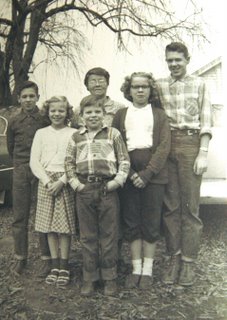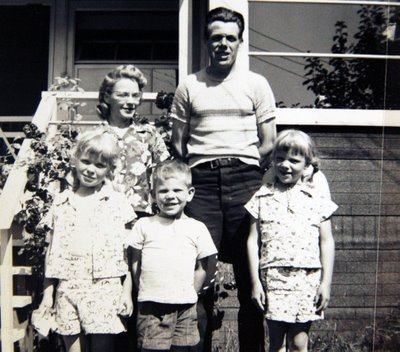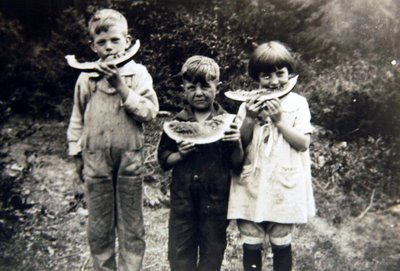 Maurice on left
Maurice on left
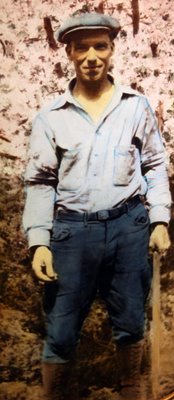 Wilfred Hole
Wilfred Hole
William Maurice Hole was born in Holly, Washington -- which is south of Bremerton about 30 miles, on Hood Canal -- June 23, 1916
His parents were Wilfred Hole and Grace Wyatt, both of Holly. He was the youngest of four children (one child did not live to adulthood): Edna, Eva, Helen, and Sonny, as his family called him. The community knew him as Bill or Maurice.
Wilfred had traveled to the Methow Valley when he was a teenager to help his brother, who grew peaches and apples up McFarland Creek. The trip was long as Wilfred went via the Hood Canal steamer to Seattle, then via train to Wenatchee, and finally by steamer to Pateros. Wildfred was a logger, fisherman, and did some farming. But his trip to Methow stuck with him and after he and Grace were married they returned.
Bill's parents purchased an apple orchard about a mile below Methow, as well as a farm near Holly. They lived in Holly during the winter and returned to Methow during the spring. The trip was memorable for them as they drove each spring in their Model T truck, via Portland, up the gorge to Patterson, across the Horse Heaven Hills to Prosser, then through Yakima , Ellensburg, Blewett Pass, and finally to Methow. It was a nearly 500-mile trip.



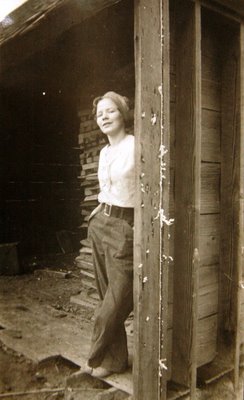
 Maurice on left
Maurice on left



